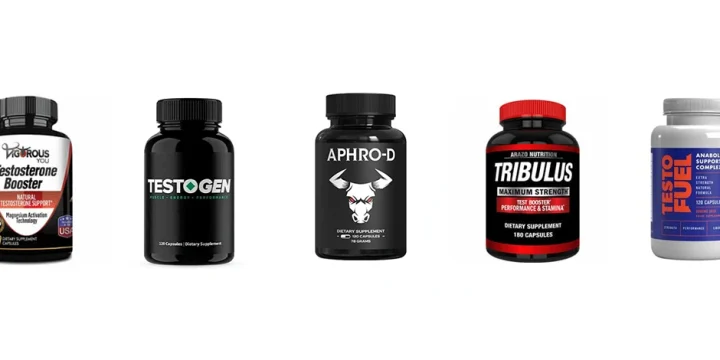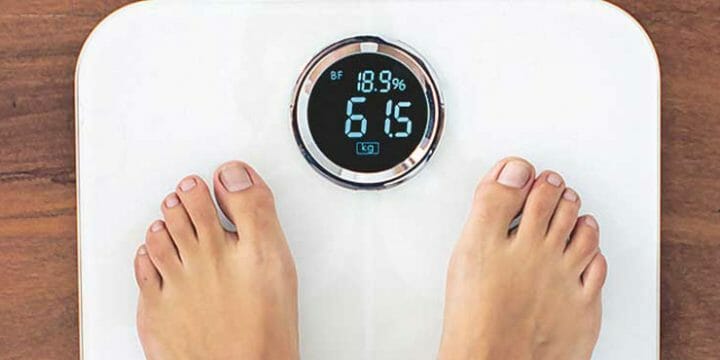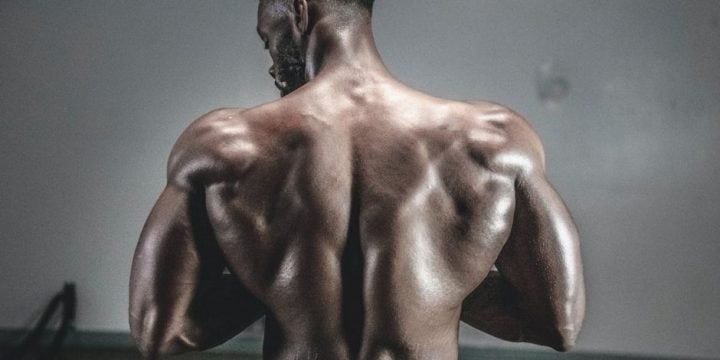There is growing concern about using testosterone boosters because they have been linked to increased health risks, such as heart attack or stroke.
While it’s true that these supplements can cause side effects, the assumption that they’re unsafe can be misleading.
So, my research team consulted various medical sources and sought the expert opinions of dietitians and nutritionists to find out if T boosters are safe.
In this article, you will learn whether they are safe when used in prescribed amounts and how to avoid health risks.
Quick Summary
- To safely boost low testosterone levels, testosterone boosters can be effective when chosen carefully and used as prescribed.
- These supplements, often containing ingredients like zinc and fenugreek extract, vary in effectiveness based on individual health needs and should be selected with care.
- 90% of testosterone booster supplements claim to boost testosterone, yet only 24.8% have supporting data, and 10.1% contain ingredients that might decrease testosterone levels.
- In my experience, while testosterone boosters can be beneficial, it's crucial to consult healthcare professionals and thoroughly research products to ensure safety and effectiveness.
Are Over-The-Counter Testosterone Boosters Safe?
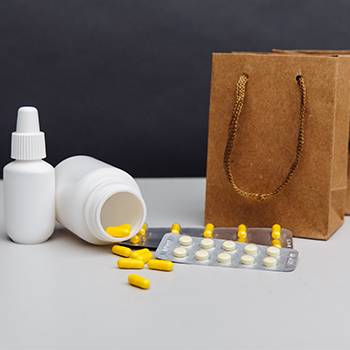
Yes, over-the-counter testosterone boosters can be safe, but it's crucial to pick them based on more than just popularity.
I've tried several brands and found that their effectiveness really depends on the ingredients. Some even had risky components that made me feel uneasy.
To stay safe, always scrutinize the label. Ensure the maker lists all ingredients and doses, and stick to doctor- or FDA-approved products.
Beware: some hide ingredients, like anabolic steroids, which mimic natural testosterone but can cause issues like erectile dysfunction, liver damage, and prostate cancer, as stated in a study found on the National Institute of Health (NIH) website [1].
What Do Testosterone Boosters Do?
Testosterone boosters, herbal supplements ramp up testosterone, which is crucial for muscle growth, red blood cell production, and sexual function.
Athletes and gym enthusiasts often use them to enhance endurance and muscle building. Common ingredients like zinc, fenugreek extract, and vitamin B6 are known to up testosterone levels.
But, their effectiveness differs for each individual. It's wise to chat with a healthcare professional before diving into these supplements, ensuring they fit your health needs.
Here are the benefits of taking testosterone boosters, according to the Mayo Clinic [2]:
- Healthy heart
- Less fat and increased muscle mass
- Stronger bones
- Increased sexual drive
- Managed erectile dysfunction
- Improved mood
Testosterone Booster Side Effects

Testosterone supplements may have potential side effects, including:
Male Breast Enlargement
Breast enlargement can occur in men taking testosterone supplements, as increased T levels lead to some conversion into estrogen. According to NIH, this might cause mild breast tenderness and growth [3].
Luckily, for most, this enlargement isn't significant and fades within weeks, as T levels usually outweigh estrogen.
Still, individual reactions vary, and some men might notice more pronounced breast growth or longer-lasting effects.
Hair Loss
It's not testosterone that causes hair loss — a prevalent testosterone myth. As per a 2013 study from the National Library of Medicine, hair loss can happen when testosterone is converted to Dihydrotestosterone (DHT) by an enzyme called 5α-reductase [4].
There are medications called 5-alpha-reductase inhibitors that may help prevent hair loss because they prevent testosterone from being converted into DHT.
Acne
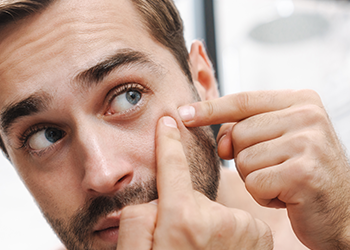
Boosting testosterone levels beyond the normal range can also cause acne.
It's because, according to NIH, testosterone can increase your sebum production, which causes dead skin cells to form a plug in the pore, leading to acne breakouts [5].
Some ways to manage or treat acne are using topical creams that kill bacteria and limiting the consumption of supplements that boost testosterone.
Related: TRT and Acne
Loss Of Libido
A study by NIH evaluated 50 testosterone booster supplements and found that while 90% claimed to boost testosterone, only 24.8% had data supporting these claims. Interestingly, 10.1% of the supplements contained ingredients that might actually decrease testosterone levels [6].
This decrese of testosterone can cause sexual dysfunction, such as loss of or decreased sex drive
Shrinking Testicles
Shrinking of the testicles or testicular atrophy is usually caused by low testosterone. But, it can be caused by a hormonal imbalance that disrupts testosterone production, such as anabolic steroids.
So, make sure to check whether your preferred testosterone booster has anabolic steroids.
Prostate Enlargement
Some studies link testosterone with enlarged prostate. However, results from studies are mixed, and there's not enough evidence to show that increasing T levels cause prostate enlargement.
Increased Aggression
Based on a study from the National Library of Medicine, higher testosterone levels have been linked to increased aggression [7].
However, an NIH review study also shows that though testosterone is linked to aggression, the connection between these two is weak [8].
Infertility
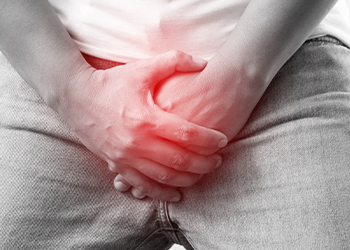
Too much of anything, including testosterone supplements, can be harmful.
It may cause an imbalance of hormones that can lead to problems in sperm production.
One study by NIH about the effects of testosterone on sperm count showed that men who took testosterone supplements have lower sperm count [9].
Disrupt Hormonal Balance
Testosterone boosters can disrupt the body's natural hormonal balance, leading to decreased natural testosterone production and potential infertility.
This hormonal imbalance can also affect mood and energy levels.
You should be cautious and seek medical advice to understand the potential hormonal implications of these supplements.
Other Side Effects
In some rare cases, testosterone products may lead to certain health concerns, such as:
- Acute liver failure
- Severe abdominal pain
- Kidney problems
It usually happens when testosterone products are not used following the recommendations.
"Testosterone abuse, usually at doses higher than those typically recommended and usually in combination with other Anabolic-androgenic steroids, is associated with major safety risks affecting the heart, brain, liver, mental health, and endocrine system."
— U.S. Food & Drug Administration
According to a 2017 study by the National Institute of Health, a rise in testosterone causes the body to produce excessive red blood cells [10]. Too many red blood cells result in thickening the blood, causing an increased risk of a blood clot, heart disease, and stroke.
Individuals who abuse excessive doses of testosterone show withdrawal symptoms like:
- Depression
- Fatigue
- Irritability
- Lack of appetite
- Decreased libido
- Insomnia
Alternatives to Testosterone Boosters

While I found testosterone boosters generally safe, they're not the only path. Personally, I've explored natural alternatives like lifestyle changes and dietary adjustments. Regular exercise and a balanced diet made a noticeable difference in my energy levels and overall well-being.
So, here are three natural ways to maintain healthy levels of testosterone.
Lifestyle Changes
Certain lifestyle modifications are known to increase testosterone levels, including:
- Exercise - Doing regular exercise, especially weight lifting, and high-intensity interval training helps in boosting testosterone levels. One study by NIH shows improving body composition (reducing fat and increasing muscle mass) and enhancing respiratory health can increase T levels [11].
- Proper Diet - Eating testosterone-promoting foods, such as leafy green vegetables, oysters, fatty fish, red meat, and others, can increase T levels. They contain essential vitamins and nutrients, such as vitamin D and magnesium, which promote testosterone.
- Quality Sleep - A study from the National Library of Medicine showed that T levels of men who only slept 5 hours every night dropped to 15% [12]. Maintaining testosterone levels and good day-to-day functioning requires adequate and high-quality sleep.
Natural Supplements
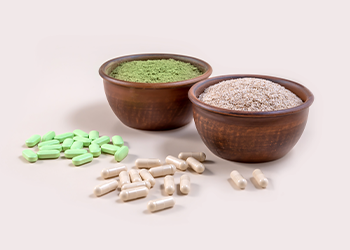
Other than lifestyle modifications, supplementation with vitamins and minerals can also help in boosting testosterone levels, such as:
You can check out our list of recommended testosterone products on the market:
Testosterone Replacement Therapy (TRT)
Testosterone boosters shouldn’t be confused with Testosterone Replacement Therapy.
TRT is a medical treatment prescribed by your doctor. Your doctor should do a physical exam and blood test to diagnose whether you have testosterone deficiency syndrome or hypogonadism. It’s best to consult your healthcare provider for a diagnosis and treatment.
TRT helps by replacing testosterone in your body that is not naturally produced. It comes in different forms, such as:
- Testosterone pills
- Patches
- Gels
- Injectables
TRT is often for middle-aged men or those with low testosterone.
Most men on TRT see better energy, sex drive, and body shape. Our doctors recommended it for hypogonadism, but only after trying natural methods like lifestyle changes.
TRT is usually safe, yet it can cause acne, lower sperm count, and raise heart attack and stroke risks.
Read More: Best Online Testosterone Replacement Therapy Clinics
FAQs
Do Testosterone Boosters Cause Gynecomastia?
There is insufficient scientific data to prove that testosterone boosters can cause gynecomastia. However, the known causes of enlarged breasts in men include testosterone replacement therapy, but also obesity, liver disease, steroid use, aging, and tumors.
Is There a Link Between Testosterone Supplements and Prostate Cancer?
The link between testosterone supplements and prostate cancer is complex and has evolved over time. Current evidence indicates that testosterone treatment is safer than once thought and may even lower the chances of aggressive prostate cancer, but further research is needed for conclusive results.
References:
- https://www.ncbi.nlm.nih.gov/pmc/articles/PMC7919692/
- https://www.mayoclinic.org/healthy-lifestyle/sexual-health/in-depth/testosterone-therapy/art-20045728
- https://www.ncbi.nlm.nih.gov/pmc/articles/PMC3897047/
- https://www.ncbi.nlm.nih.gov/pmc/articles/PMC4174066/
- https://www.ncbi.nlm.nih.gov/pmc/articles/PMC3051853/
- https://pubmed.ncbi.nlm.nih.gov/31385468/
- https://www.ncbi.nlm.nih.gov/pmc/articles/PMC3693622/
- https://pubmed.ncbi.nlm.nih.gov/31785281/
- https://www.ncbi.nlm.nih.gov/pmc/articles/PMC6305868/
- https://www.ncbi.nlm.nih.gov/pmc/articles/PMC5647167/
- https://www.ncbi.nlm.nih.gov/pmc/articles/PMC5924956/
- https://www.ncbi.nlm.nih.gov/pmc/articles/PMC4445839/
About The Author
You May Also Like
